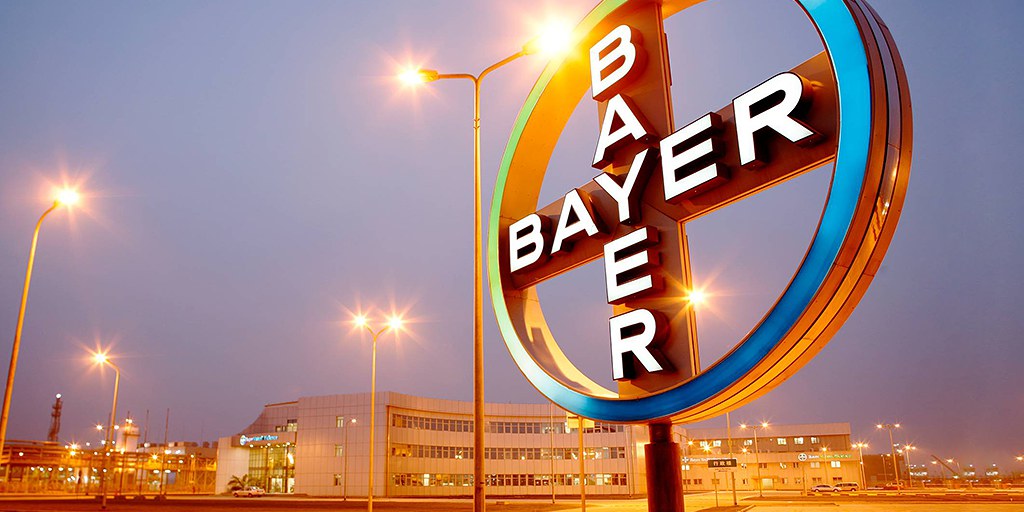Bayer-Monsanto deal approved
May 30, 2018 | Expert Insights

The US Department of Justice has approved the controversial takeover of agriculture and biotech company Monsanto by rival Bayer Corporation. The deal, which was under scrutiny due to competition concerns, was also approved by the EU in March this year.
Background
Monsanto is a multinational agricultural and biotechnology corporation headquartered in Creve Coeur, Missouri. Monsanto was founded by John F. Queeny in 1901, as an artificial flavouring manufacturer. Monsanto established its first agricultural division in the 1960s and was among the first to conduct field trials of genetically modified crops. By 1997, it had introduced new biotech canola, cotton, and corn. Today, it is primarily known for its ventures in biotechnology and agriculture. The Company operates through two division: Seeds and Genomics (which produces GM and hybrid seeds as well as other biotechnology products), and Agricultural Productivity (which produces herbicides, and digital agriculture tools.)
Monsanto claims to “deliver products that help farmers grow food sustainably.” However, the company has faced numerous controversies. It has manufactured numerous products that have since been found to be highly harmful including DDT, PCBs, and Agent Orange, and certain growth hormones. Agent Orange was a herbicide widely used by US forces in the Vietnam war, and has been linked to health problems such as cancer. Monsanto has also been criticised for its parenting policy on seeds that draw from indigenous varieties in countries such as India.
Monsanto has received widespread criticism from environmental groups and activists for its bio-engineered products and herbicides. Roundup, which is the company’s most popular herbicide, uses the pesticide glyphosate, which a number of health agencies have identified as a carcinogen. Some blame Roundup for destroying monarch butterfly and honeybee populations in Europe and North America. Monsanto has challenged these claims. In December last year, Monsanto was ordered to give cash back to US farmers for a weed killer that was linked to widespread crop damage.
Bayer
Bayer Corporation was established in August 1863 as “Friedr. Bayer et. comp." in Wuppertal-Barmen, Germany. It was founded by dye salesman Friedrich Bayer and dyer Johann Friedrich Weskott. Today the company, along with its subsidiaries, manufactures healthcare products (in the field of animal health, pharmaceuticals, and consumer care; agriculture products (including fungicides, herbicides, insecticide, and seeds; and high-tech polymer materials.
Analysis
The US Department of Justice cleared Bayer’s controversial $66 billion takeover of Monsanto this week. The two former rivals had finalised the deal in 2016 and were pending approval from US antitrust authorities. "America’s farm system is of critical importance to our economy, to our food system, and to our way of life," said Makan Delrahim, the head DOJ’s antitrust division. "American farmers and consumers rely on head-to head competition.”
Assistant attorney-general Makan Delrahim said that the sale includes “the largest merger divestiture ever required by the United States”. Bayer and Monsanto are direct competitors in their herbicide and GM seed businesses. As a result, Bayer has agreed to sell parts of its seed and digital farming businesses, and some intellectual property worth approximately $9 billion to German chemical group BASF.
The deal was also approved by the EU in March this year. “We have approved Bayer’s plans to take over Monsanto because the parties’ remedies, worth well over €6 billion, meet our competition concerns in full. Our decision ensures that there will be effective competition and innovation in seeds, pesticides and digital agriculture markets also after this merger,” EU competition commissioner Margrethe Vestager said at the time. Russia and Brazil have also cleared the deal.
CEO Werner Baumann said that “almost all clearances which are conditions for closing the transaction” had been obtained. “Receipt of the DoJ’s approval brings us close to our goal of creating a leading company in agriculture,” he added. Regulatory approval from Canada and Mexico is still pending.
Counterpoint
A number of farmers and environmental groups have criticised the DoJ’s decision. "This extreme consolidation drives up costs for farmers and it limits their choice of products in the marketplace," the National Farmers Union said. The Organization for Competitive Markets said that the decision “makes it clear that our antimonopoly laws are completely worthless and the U.S. Department of Justice merger review process is pointless.” Environmental group Friends of the Earth called the deal a “toxic mega-merger” that would allow the corporation disproportionate control over the food system and damage the bargaining power of farmers.
Assessment
Our assessment is that it is essential to prevent monopolies, particularly in sensitive areas such as agriculture. We believe that it is essential to maintain systems that hold large corporations accountable to their customers, in this case, to small and medium farmers.








Comments